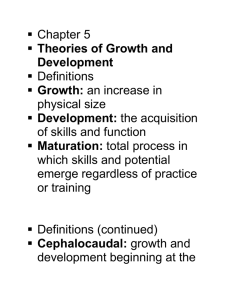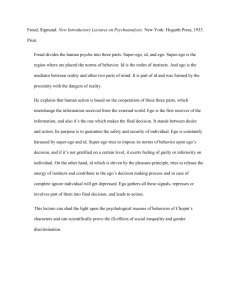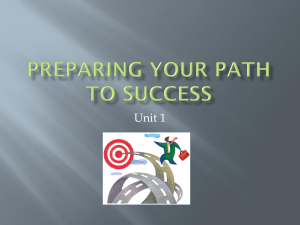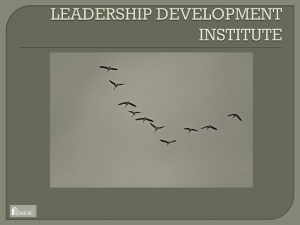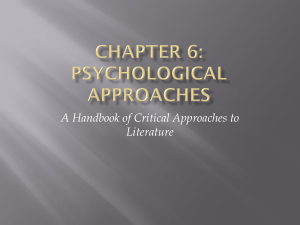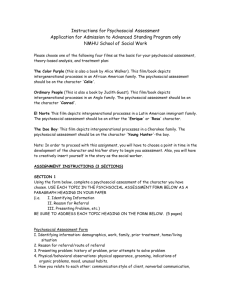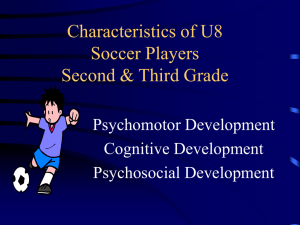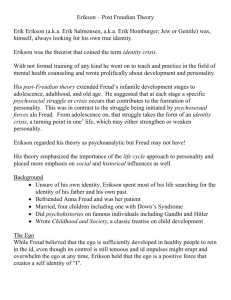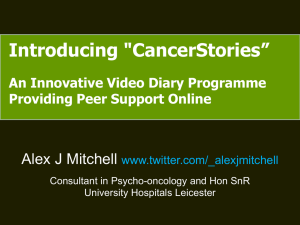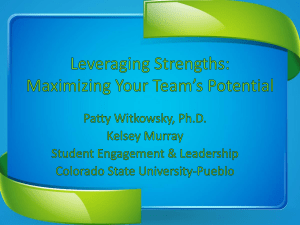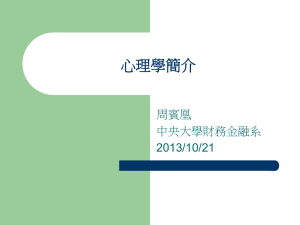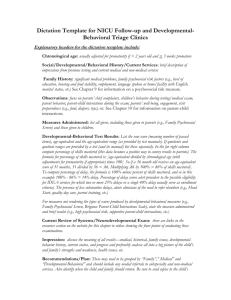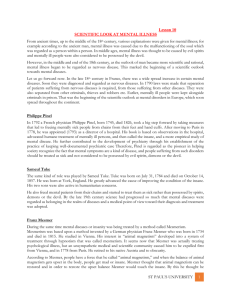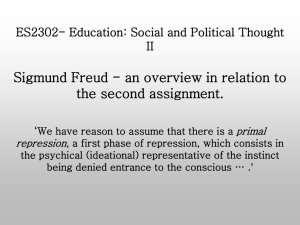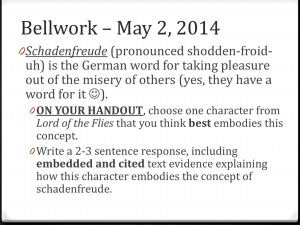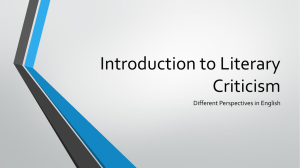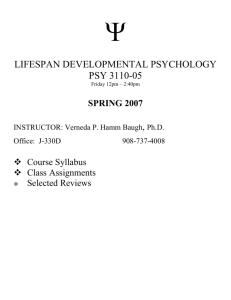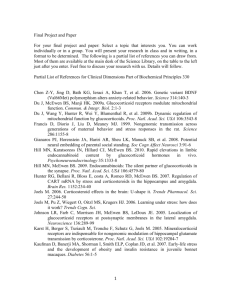Erickson`s Theory of Psychosocial Development
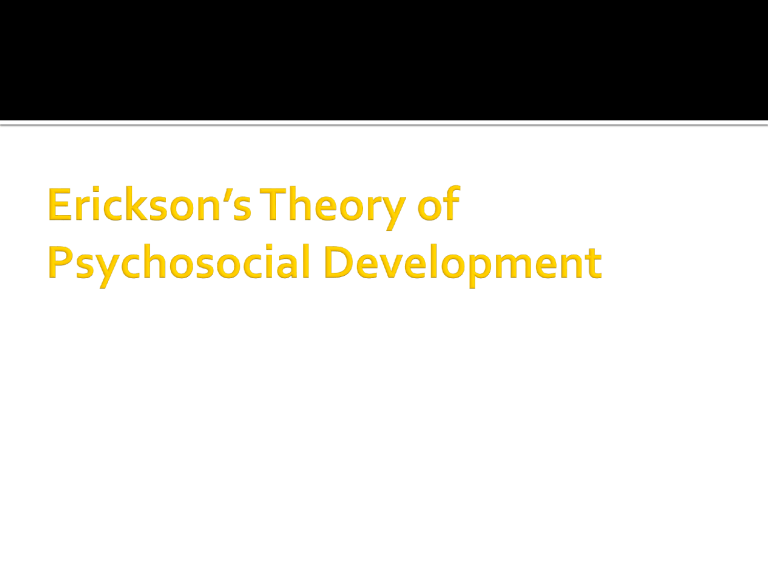
Erikson studied Freud’s Psychoanalysis
Theory under Freud’s daughter, Anna
Expansion of Freud’s concept of ego
Only developmental theory that extends through adulthood
Sources: London, Ladewig, Ball, Bindler, & Cowen, 2011
McEwen & Wills, 2007
Eight stages of psychosocial development with an identified challenge to be mastered
As each challenge is mastered strengths are gained contributing to character and health
Development is primarily qualitative - occurring in stages
Also quantitative because one’s identity becomes stronger with mastery of challenges
Nature determines the sequence of stages
Must pass through one stage prior to entering next stage
Sources: Sharkey, 1997
Tomey-Marriner, 1989
STAGE (AGE)
I Infancy (0-1 )
II Toddler (2-3)
III Preschooler (3-6)
IV School-age
V Adolescence (12-18)
(7-12)
VI Young Adult (20’s)
VII Middle Adult (up to 50)
VIII Old Adult (≥ 50)
CRISIS
Trust vs.. Mistrust
Autonomy vs. Shame & Doubt
Initiative vs. Guilt
Industry vs. Inferiority
Ego Identity vs. Role Confusion
Intimacy vs. Isolation
Generativity vs. Self-absorption
Integrity vs. Despair
Source: Boeree, 2006
Directly applicable to nursing care of children
Health promotion & maintenance visits help caregivers meet child’s needs
Educate parents to identify normal tasks
Educate parents to encourage healthy development
Provides framework to assess hospitalized child & provide care to ensure progression through the developmental stages
Source: London, et al., 2011
Integral to holistic nursing
Essential in assessment to determine age appropriateness or arrested development of patients
Results of ego strengths evaluation used by nurses for assessment and treatment outcomes
Ego strengths used by nurses to empower patients to take control of their lives
Source: McEwen & Wills, 2007
Research studies were conducted in the following areas:
Impact of diabetes on the development of
psychosocial maturity and the older adult
How school age children deal with disaster
Self-care practices of adolescents
Concept of generativity in middle-aged women attending graduate school
Source: McEwen & Wills, 2007
I personally use Erickson’s Theory of
Psychosocial Development each time I am in the clinical area with students. A section of the assessment tool that we use is devoted to assessing the psychosocial issues of the assigned patient. I use this information to identify the patient’s strengths & weaknesses. When planning care, I capitalize on the strengths to assist the patient promote recovery/health maintenance and promotion.

